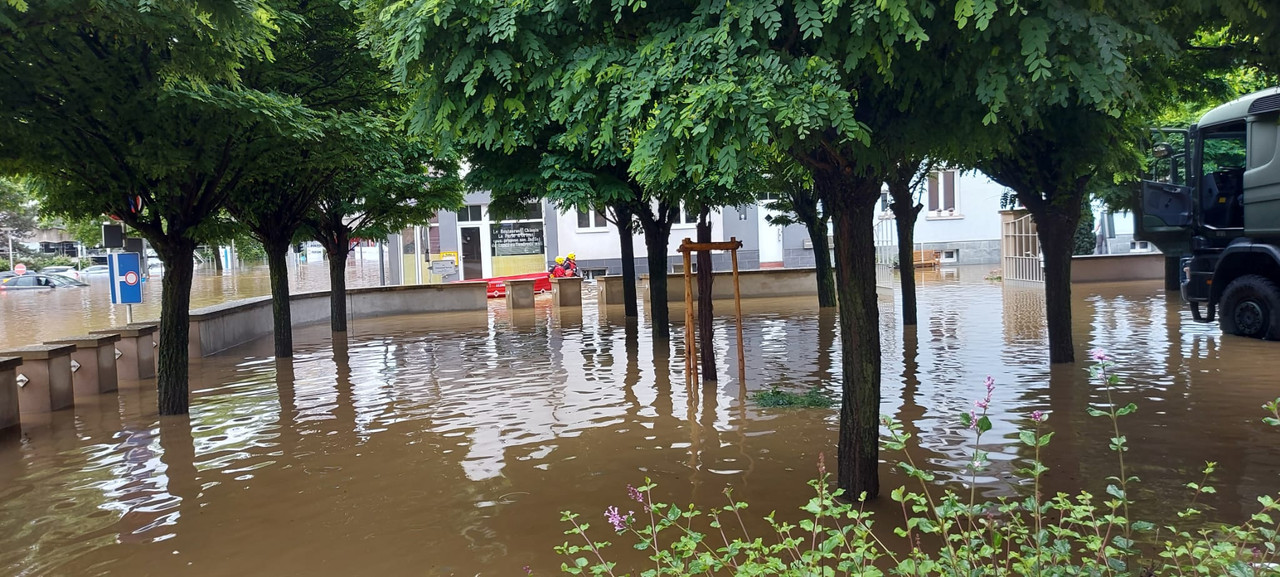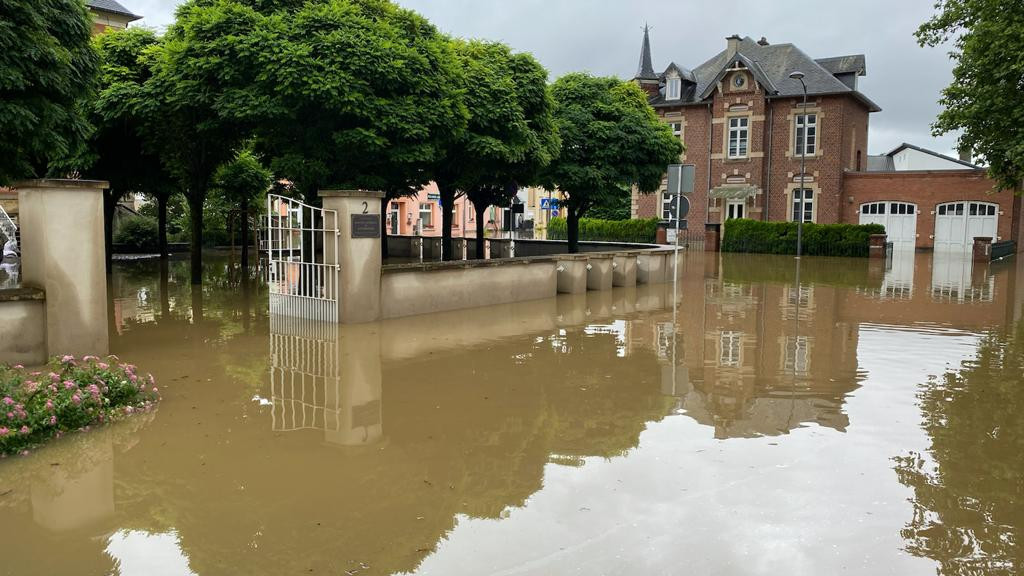After days’ of torrential rain, CNL director Nathalie Jacoby travelled to her office in Mersch shortly before 8:00am on 15 July with rubber boots in hand.
“When we’d had flooding before and it was always a scenario of 20 centimetres,” she recalled. She quickly realised that waders would have been better as, when she entered the basement of the Maison Servais where 10% of the archives were stored, “it [the water] was over my waist”.
Jacoby and her team sprang into action rescuing the dry material first, estimating this to be about a third of the printed archive material in the basement. Then began the work to remove wet material, some of which included letters and photographs. Jacoby said that under the guidance of archivists from the BNL and national archives, a chain of staff and volunteers passed the material to safety, wrapped it in clingfilm and froze it, to suspend the disintegration process. It will later be freeze-dried by a specialised firm in Germany.
Over 1.5 metres of water
During the rescue operation, the water level continued to rise, reaching the director’s shoulders at its height. “It was a real adventure,” Jacoby recalls of the challenge of retrieving material from the muddy waters while manoeuvering around floating furniture. At one point, helpers called round with a boat, it being the best way to travel around the submerged town. “We had a boat in our corridor for days,” the director laughs.

A 15 July 2021 photo shows helpers pulling a boat along a flooded street in front of the CNL in Mersch Photo: CNL
The army was also in attendance, putting in place a freezer and helping to pump water out of the flooded basement. Jacoby said that the floodwater broke the phone system and heating and cut off the electricity supply. Most of the servers were saved, however. It also damaged some copies of the CNL’s own printed books in the basement of the literary café, but since they had other copies, she stressed that “no content was lost”.
Need for more archive space
An early inventory of losses includes scanners and computers, though Jacoby says it will take some time to assess the full extent of the damage . As for the water damaged archive material, “only when we get it back, will we know what we lost,” says Jacoby.
The flooding underlines the centre’s pressing need for more archive space. Jacoby, who took up her post in September 2020, said that ministry-level discussions to extend storage had begun well before her appointment. “We added the comics archive a few years ago. The theatre archive, which we’ve had a number of years, is also growing,” she said, adding: “We need more space; whether that will be here or somewhere else is not for us to decide.”
While work is ongoing to dry out the basement’s sandstone walls, staff were finally able to return to work in the office ten days later, on 26 July. “It’s a catastrophe; there’s no other way of looking at it. But we can still function,” says Jacoby, stressing that they were not the only cultural venue to be impacted.
